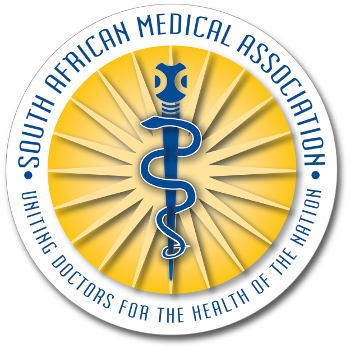JOINT MEDIA RELEASE: FOLLOWING AN ENGAGEMENT BETWEEN THE SOUTH AFRICAN MEDICAL ASSOCIATION (SAMA) AND THE HEALTH PROFESSIONS COUNCIL OF SOUTH AFRICA (HPCSA) REGARDING AMENDMENTS OF THE ETHICAL RULES OF CONDUCT FOR REGISTERED HEALTH PRACTITIONERS
Pretoria - The Health Professions Council of South Africa (HPCSA) has published the amended Ethical Rules of conduct for health practitioners registered under the Health Professions Act, 1974 (Act No. 56 of 1974) (Hereafter referred to as Rules).
Based on the changes to these Rules, the South African Medical Association (SAMA) and the HPCSA engaged to clarify the critical amendments that relate to the practising of health practitioners, such as doctors. The engagement focussed on issues such as the impact of Rules on doctors’ day to day practice, definitions clarity, impact on fees for reimbursement of doctors, employment of doctorsand so forth.
Highlights of the engagement:
- Regulatory Scope: The HPCSA emphasised that as a regulatory body, it is a statutory requirement that it functions and confines itself to the limitations of its mandate as per legislation. As such, the HPCSA’s regulations are guided by the various acts of parliament and the Constitution of the Republic of South Africa, 1996. The HPCSA’s regulatory mandate only regulates healthcare practitioners that are legally required to register with the HPCSA to practise.
- Motivation for rules amendments: The amendments to the Rules were prompted by the need to comply with recommendations of the Health Market Inquiry (HMI) and the Competition Commission of South Africa, to infuse element of flexibility, improve competition and promote access and innovation.
- Establishing fair regulation across statutory bodies: SAMA and the HPCSA agree that some of the challenges that doctors, and other health practitioners, encounter are a result of parties that are not regulated by Council. There is a need for stronger collaborations between the HPCSA and other regulators so that doctors are not uniquely burdened or disadvantaged by the regulatory requirements.
- Finalisation of Proposed Rules: SAMA highlighted a significant concern regarding the labelling of the published rules as "Proposed," indicating that these rules cannot be regarded as final. However, HPCSA acknowledged an error during the publication process but emphasized that the amendment to the rules is final, with the correct document available for stakeholder review. Despite this clarification, SAMA reiterated its stance that the rules cannot be considered finalized and emphasized the necessity for additional revisions.
- Definition Revisions: Several definitions were identified for further revision to enhance accuracy and clarity within the Ethical Rules. The HPCSA commits to provide guidelines to elaborate further on the identified issue.
- Fee Variation (Rule 7): Discussions centred around Rule 7, which currently prohibits fee sharing, with reference made to the 2017 guidelines on global fees to guide medical practitioner fees.
- Approval Processes (Rule 8 A): Challenges with Rule 8 A were noted, particularly concerning its alignment with actual practice.
- Ongoing Discussions on Rule 18: Ongoing discussions between the Office of Health Standards Compliance (OHSC) and the HPCSA regarding Rule 18 were highlighted, especially regarding the existence of non-registered entities practising or delivering health services.
- Ownership of shares or financial interest in health (Rule 23A): Considerations regarding conflicts of interest and ethical implications of owning shares in listed companies were discussed and SAMA voiced the perspective that these considerations require further revisions.
Concerns Raised:
- Corporatisation Concerns: There were apprehensions that allowing unregulated employment of doctors might lead to increased corporatisation of the profession, prioritising profit motives over ethical considerations and patient care.
Conclusion
SAMA and the HPCSA reaffirm their commitment to addressing these concerns and ensuring that amendments to the Rules uphold principles of fairness, professionalism, and patient care. Further updates and actions will be communicated as progress is made. Going forward, both parties agreed that regular engagements will be conducted.
